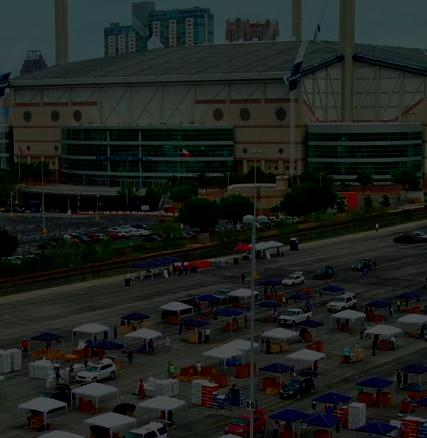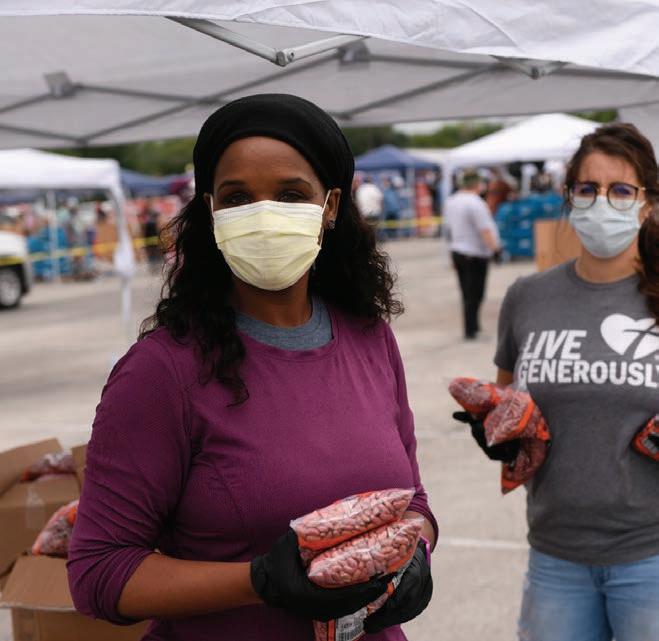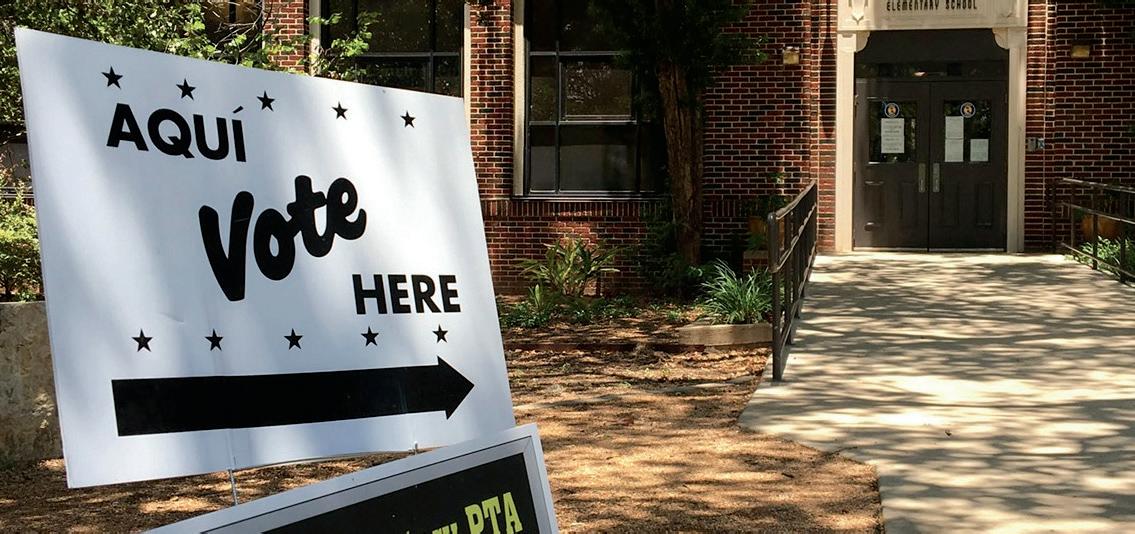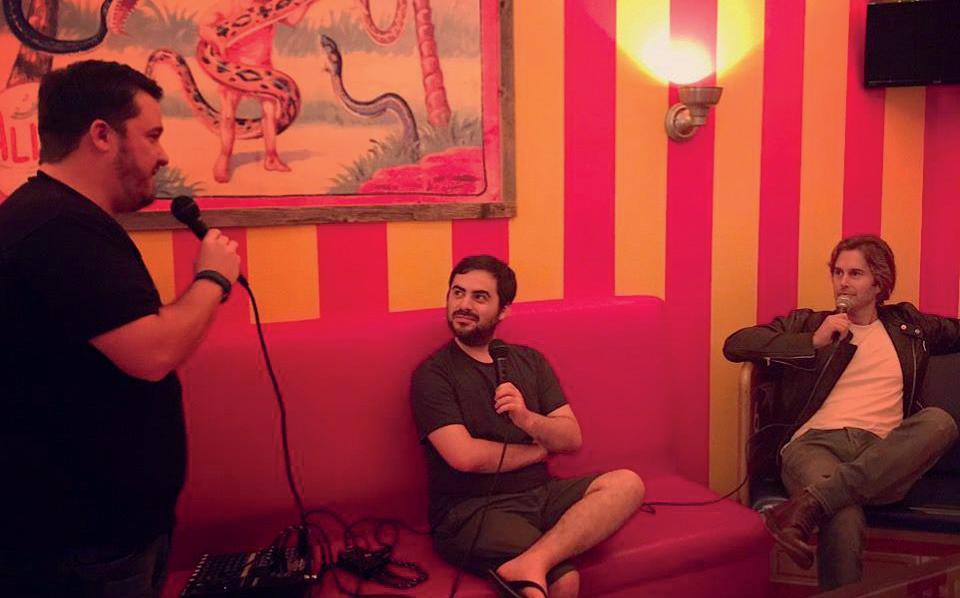
9 minute read
Food
Still Spinning San Antonio record stores strive to stay afl oat during the COVID-19 crisis
BY C. MASON
Advertisement
Before the COVID-19 epidemic, sales of vinyl records were booming — higher than they’d been at any point since their heyday. But due to the recent lockdown, record store regulars are unable to get their physical media fi x.
The lockdown has also meant depleted inventory and slumping sales for San Antonio’s record stores, making them among the small businesses most aff ected by the crisis.
While restaurants and other businesses pivoted to delivery and curbside pickup, the transition to a no-contact experience proved a deeper challenge for music retailers. The shops rely on foot traffi c for the majority of their sales. They’ve had to scramble to keep paying the bills and supplying tunes to their customers.
Some shops, such as Southtown Vinyl, have moved entirely to online sales to keep their employees and customers safe.
“In lieu of in-store sales, I’ve been focusing on online sales through the shop website at www.southtownvinyl.com. I decided to off er everything my distributors carry on the site,” said Southtown Vinyl co-owner Tommy Newman. “So, there’s a vast inventory available on the site, along with featured records and preorders. We’ve seen great numbers online so far, especially with preorders.”
Newman says the online orders aren’t fully supplementing the in-store losses, but he’s hopeful.
“I’ve also been personally hand-delivering and shipping orders to some of our dedicated regulars,” he added.
Turning the Tables
Beyond fi guring out how to get products to customers, local shops say they’re also fi guring out how to deal with inventory issues. Used records make up a signifi cant part of most small music retailer’s revenue, and social distancing has shaken up that market signifi cantly.
“We can’t do buys right now,” said Don Hurd, co-owner of Imagine Books and Records. “We did order some new records recently and those sold really fast. … Our own stock is ge ing lower and lower, because we can’t go out to people’s homes to do buys or have them come in to bring us stuff .”
Imagine may not be able to restock its inventory of used records for the time being. However, the store’s been making the best of its situation by creating genre-based mystery packs of its LPs and books.
“People are gonna call and say, ‘Hey, do you have Led Zeppelin IV,’ and we’re like, ‘Well, no… we can put together a hard rock mystery pack for you,’” Hurd explains, “and people are really excited about that.”
Zeke Baker, co-owner of Crazy Rhythms, said keeping his year-old store afl oat has meant focusing on an adjacent but diff erent business — selling vintage collectibles on eBay. While he and his brother and business partner Zach, have no desire to evolve into a vintage shop, he said the economic downtime made a good time to sell off the collectibles they have amassed so they can support the vinyl shop.
The Next Track
For many music lovers, the weekly excursion to a favorite record store was as much a part of their pre-COVID routine as a trip to the grocery store. The experience off ers escapism,
music
conversation and, of course, good music. Both customers and the shop owners say they miss the interaction that’s at the heart of the experience.
Supplementing their business with online sales and curbside pickups may not fully scratch the itch, but they certainly keep stores solvent and fans fl ush with new vinyl.
The bo om line, record retailer say, is that their survival depends on music enthusiasts continuing to buy. Give the stores a call, check out their websites and tag them in social media posts. By doing so, customers can help ensure these businesses are still there to visit and provide the community with great music once the economy stabilizes.
San Antonio’s record retailers say they cannot simply wait until things “go back to normal” and customers can sift through the stacks of records just like old times. Community helped these small businesses thrive, and that’s will keep them alive. Shutterstock
Find more music coverage every day at sacurrent.com
When the Music’s Over
Without federal help, San Antonio music venues are dying. Here’s how you can help.
BY SANFORD NOWLIN
Unable to stage shows due to the pandemic, independent music venues are suff ocating right now. And they’re calling on music fans to help them breathe again.
The newly formed National Independent Venue Association — a coalition of 1,300 independent venues, including a dozen in San Antonio — is seeking federal help such as tax relief and grants to weather the crisis. But to make its case to Congress, the group needs those who enjoy live music to fi ll out an online le er at nivassoc.org to explain just what’s at stake.
NIVA estimates that 90% of its members don’t have enough cash to last more than six months without government help, according to a recent Rolling Stone story. More than half say they don’t expect to last more than three months.
And, yes, that la er group likely includes some of the venues where you regularly catch your favorite bands.
“We gather people who have a love of music and want to pay for it. That’s all we do,” NIVA Board President Dayna Frank, who also runs Minneapolis’s First Avenue Productions, told Rolling Stone. “And we don’t have any business right now, only the expenses.”
NIVA has been lobbying lawmakers to explain the economic and cultural importance of locally owned venues, from neighborhood bars to thousand-seat theaters. Its online le er campaign generated 200,000 messages during its fi rst 24 hours, and the group is also asking fans to spread the word using the #SaveOurStages hashtag.
In San Antonio, venues ranging from Paper Tiger and Faust to Lonesome Rose and Floore’s Country Store have thrown in to help with the lobbying eff ort, local promoter and Saustex Records owner Jeff Smith said. While giant Live Nation is likely to survive the shutdown, he worries an entire strata of performance spaces is about to dry up.
Indie venues operate on razor-thin profi t margins, providing stages for everyone from local bands to longtime touring acts to reach an audience and maybe, just maybe, scratch out a living. Faced with bankruptcy and lost leases, many owners will face li le choice but walk away, Smith added.
“These venues not going to reappear as easily as they disappear,” he said.
Oscar Moreno

“Without some kind of help, we’re probably talking about 80% of venues going away.”
Blayne Tucker, owner of San Antonio’s The Mix and head of NIVA’s Texas lobbying eff orts, said saving music venues also benefi ts the local economy. According to NIVA data, those businesses account for $41 million in direct economic impact in San Antonio and employ roughly 1,000 people.
“Beyond the cultural and entertainment aspect, jobs are at stake,” Tucker said. “An industry’s at stake.”
Americana Artist Wade Bowen Hosts Quaranstream Concert Series on Friday Nights
The Americana music scene is deeply embedded in the Texas Hill Country. Some of the folk-inspired genre’s best-known performers not only write and gig in the Austin and San Antonio areas, they also live and raise families here.
One such artist Wade Bowen. Born and raised a Texas boy, Bowen calls New Braunfels home. Even though the coronavirus put a wrench in touring to promote his latest album, Hold My Beer — recorded with fellow Americana favorite and New Braunfels resident Randy Rogers — Bowen hasn’t stopped performing live.
To that end, Bowen converted his garage into a honky-tonk mancave to host live shows on Wade’s World Quaranstream.
On Friday nights, Bowen sits a fair distance from another Americana artist, and the two take turns singing their own songs. They also take breaks to answer viewers questions or pause for “virtual shots” with those streaming on Facebook Live.
Bowen has featured guests including Stoney LaRue, Sean McConnell, Jack Ingram and Cody Canada. The live stream kicks off at 8 p.m. every Friday, and it’s not unusual for the acoustic song-swap to last until nearly midnight.
A “Shiner City Limits” sign hangs on the wall behind Bowen’s home bar, providing an appropriately Texan background set for the series. Shiner Bock Beer sponsors the event, and proceeds from the “virtual tip jar” benefi t MusiCares Foundation, a nonprofi t that helps struggling musicians make ends meet.
Wade’s World Quaranstream averages about 3,000 streamers each live show, with Bowen dropping his phone number on social media for viewers to message song requests and questions for the artists to answer.
While the online jam session may not be quite the same as seeing a show unfold in a barroom with a cold one in hand, it’s pre y damn close. — Katie Hennessey
Social Distancing?




WE CAN MAKE BEING ALONE WITH YOURSELF MUCH MORE PLEASURABLE!

OPEN DAILY 7AM - 2AM 281 & NAKOMA | 210.404.0011 I-35 & THOUSAND OAKS | 210.595.6781
MILITARY 20% OFF EVERY DAY with valid



I N M A R C H A N D A P R I L Y O U S T E P P E D U P A N D R E S P O N D E D T O T H E C O V I D - 1 9 C R I S I S A N D MET THE NEEDS OF YOUR COMMUNITY!
NEIGHBOR HELPING NEIGHBOR 17,000,000 POUNDS OF FOOD DISTRIBUTED IN OUR 16-COUNTY SERVICE AREA
26,000 HOURS SERVED BY VOLUNTEERS



NEIGHBORS
2,000 HOME DELIVERIES COMPLETED
33,500 CARS SERVED THROUGH LINES
including a record 10,000 cars on April 9 at Trader’s Village




Millions of community members lent their voice to support the Food Bank through social media. The San Antonio Express-News, led by reporter Tom Orsborn, and photojournalists William Luther, Kin Man Hui and Jerry Lara, brought attention from around to the plight of our city.
MEDIA
600,000 INDIVIDUALS SERVED
(50% ACCESSED THE FOOD BANK FOR THE FIRST TIME)


Thousands of gifts providing millions of meals





